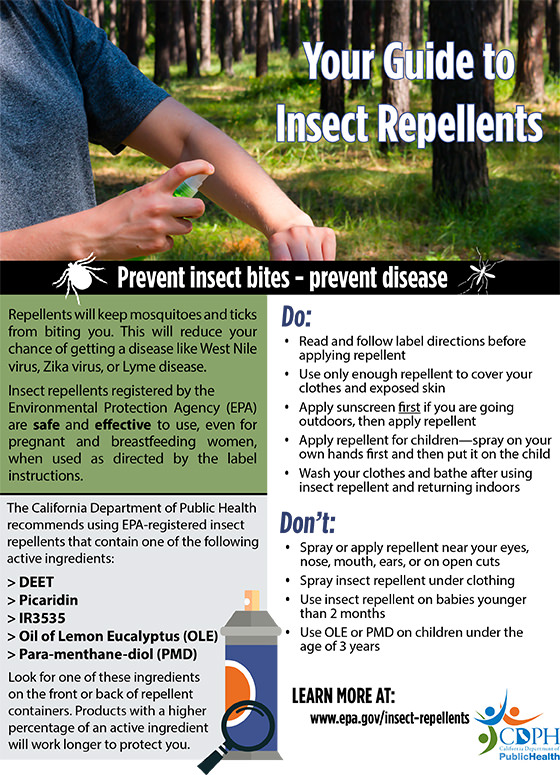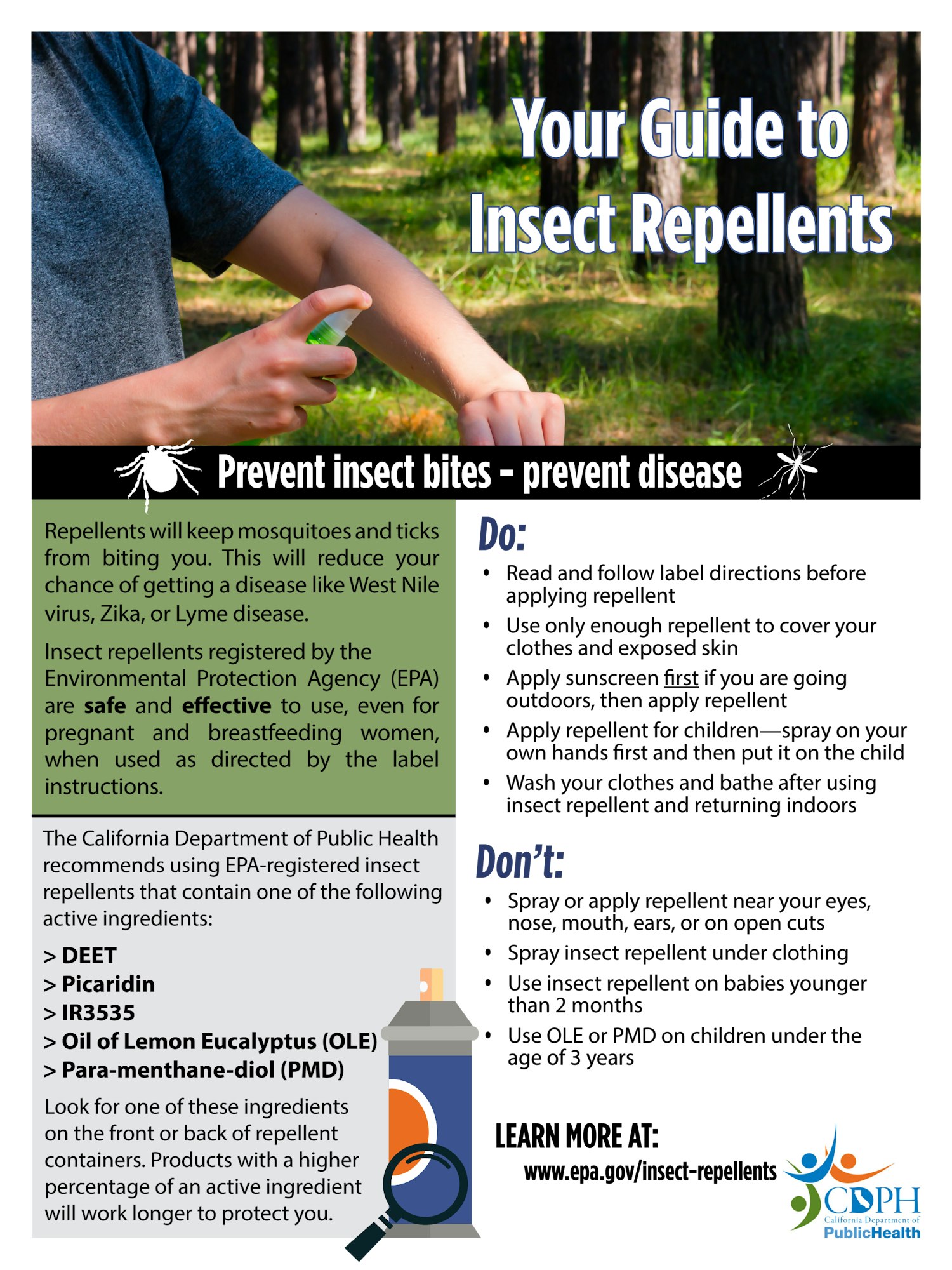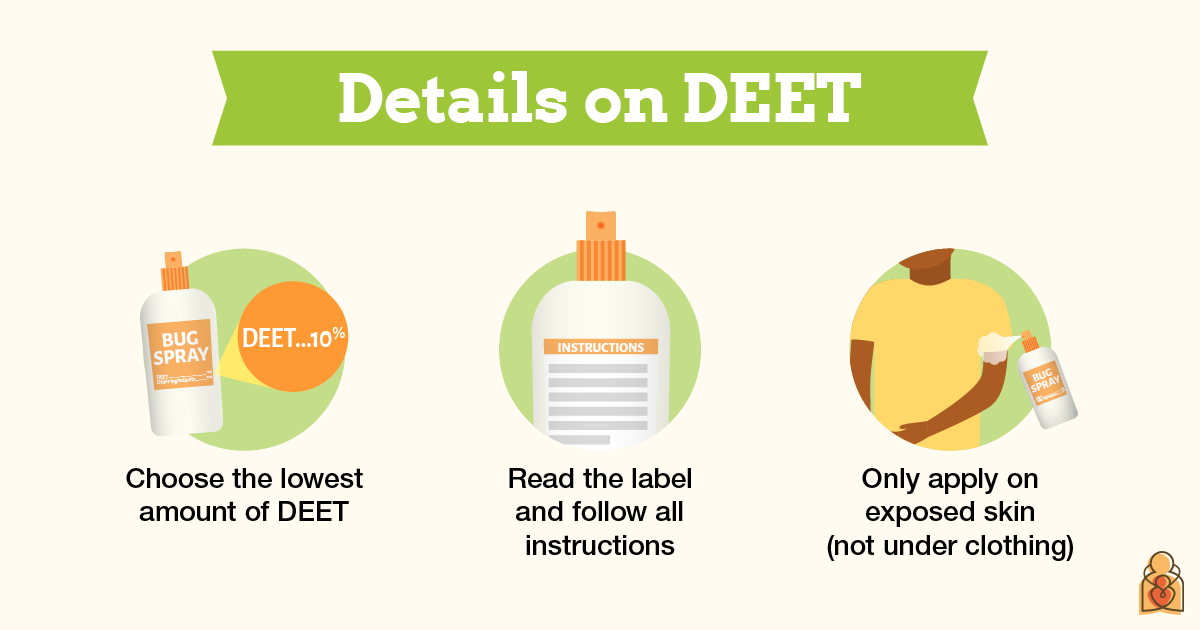Mosquito repellent can be used on babies over two months old. It is safe for toddlers as well.
Protect your child by using repellents approved for their age to prevent mosquito bites. Dress them in long, light-colored clothing and use mosquito-proof mesh on doors and windows. When outside, use mosquito-proof netting over strollers. It is essential to take precautions to safeguard your child from mosquito-borne illnesses.
Remember to follow safety guidelines and choose appropriate repellents for your child’s age to ensure their protection against mosquitoes.

Credit: babyganics.com
Introduction To Mosquito Repellents For Children
Mosquitoes are not only annoying pests, but they can also pose serious health risks, especially to children. As a parent, it is important to protect your little ones from mosquito bites and the diseases they may carry. One effective way to do this is by using mosquito repellents specifically designed for children. In this section, we will explore the importance of protecting children against mosquitoes and address common concerns parents may have when it comes to using mosquito repellents.
Importance Of Protection Against Mosquitoes
Mosquitoes are not just a nuisance; they can transmit diseases such as malaria, dengue fever, and Zika virus. Children, with their developing immune systems, are particularly vulnerable to these diseases. It is crucial to provide them with adequate protection against mosquito bites to ensure their health and well-being.
Common Concerns For Parents
When it comes to using mosquito repellents for children, parents often have valid concerns. Let’s address some of the common questions and doubts they may have:
- Are mosquito repellents safe for children? The safety of mosquito repellents for children is a top concern for parents. While the Environmental Protection Agency (EPA) does not impose any official age restrictions on most repellents, it is important to choose products specifically formulated for children and follow the instructions for safe use.
- Which mosquito repellents are safe for children? There are various types of mosquito repellents available, including those containing DEET, picaridin, and natural ingredients like citronella oil. It is recommended to choose repellents with lower concentrations of active ingredients for children, and always check the product labels for age guidelines.
- At what age can you start using mosquito repellent on children? While there is no specific age limit set by the EPA, experts generally recommend waiting until the child is at least two months old before using repellents on their skin. However, for babies younger than two months, it is best to rely on physical barriers such as mosquito nets, protective clothing, and keeping them indoors during peak mosquito activity.
- How should mosquito repellent be applied on children? When applying mosquito repellents on children, it is important to follow the instructions on the product label. Generally, a thin and even layer should be applied to exposed skin, avoiding the eyes, mouth, and hands. It is also advisable to wash off the repellent when it is no longer needed.
By addressing these common concerns, parents can make informed decisions and take the necessary steps to protect their children from mosquito bites and the potential risks they carry.
Age Guidelines For Repellent Use
Safely use insect repellent on babies over two months old. Follow guidelines to protect your child from mosquito bites. Ensure to choose a kid-safe bug spray for effective protection.
Infants And Repellent Safety
When it comes to protecting infants from mosquito bites, it is important to prioritize their safety. The Environmental Protection Agency (EPA) does not impose any official age restrictions on most insect repellents. However, it is recommended to exercise caution with the youngest babies.
For infants under two months old, it is generally advised to avoid using insect repellents containing DEET or other chemical-based ingredients. Instead, parents can resort to other measures to protect their babies from mosquito bites:
- Dress them in long, light-colored, loose-fitting clothing that covers their arms and legs.
- Use mosquito-proof mesh on doors and windows to prevent mosquitoes from entering the house.
- When taking the baby outside in a pram or stroller, use mosquito-proof netting to keep mosquitoes away.
By following these best practices, parents can minimize the risk of mosquito bites for their infants while avoiding the potential hazards associated with certain repellent ingredients.
Best Practices For Toddlers
When it comes to toddlers, the use of insect repellents becomes more common. While there are no official age restrictions on EPA-registered repellents, it is still important to ensure the safety and effectiveness of the chosen product.
Here are some guidelines to consider when using insect repellents on toddlers:
- Choose an insect repellent that is specifically formulated for children.
- Opt for products with lower concentrations of active ingredients, such as DEET or picaridin, as recommended by the American Academy of Pediatrics.
- Apply the repellent sparingly and only to exposed skin, avoiding the eyes, mouth, and hands.
- Do not use repellents on cuts, wounds, or irritated skin.
- Follow the instructions provided by the manufacturer for age-specific usage.
- Supervise the application of repellents on young children to prevent accidental ingestion.
By adhering to these best practices, parents can effectively protect their toddlers from mosquito bites while ensuring their safety and well-being.
Ingredients To Avoid For Young Children
For young children, it’s important to avoid using mosquito repellents until they are at least two months old. Opt for natural alternatives like covering up with light-colored clothing and using mosquito-proof netting on strollers. Be cautious with chemical repellents for the little ones’ safety.
Avoid using mosquito repellents with certain chemicals of concern that may be harmful to young children.
Chemicals Of Concern
Some chemicals to avoid in mosquito repellents for young children:
- DEET: Can cause skin irritation and neurological effects.
- Picaridin: May cause eye irritation and skin sensitization.
- IR3535: Can cause eye irritation and skin sensitization.
Natural Vs Synthetic Repellents
When choosing a mosquito repellent for young children, consider the difference between natural and synthetic repellents.
- Natural repellents: Made from plant-based oils like citronella and lemon eucalyptus.
- Synthetic repellents: Contain chemical compounds like DEET and picaridin.
Opting for natural repellents can be a safer choice for young children.

Credit: www.sjmosquito.org
Safe Application Of Repellents On Children
When it comes to the safe application of repellents on children, parents may wonder what age they can use mosquito repellent. The Environmental Protection Agency does not place official age restrictions on most insect repellents, except for OLE. It is important for parents to choose the appropriate repellent and follow guidelines for safe use to protect their children from mosquito bites.
Step-by-step Guide
When applying mosquito repellent on children, follow these steps:
- Choose the right repellent: Opt for products specifically designed for children.
- Read the label: Follow instructions carefully, especially regarding application frequency.
- Apply to exposed skin: Cover areas not protected by clothing.
- Avoid eyes and mouth: Be cautious around sensitive areas.
- Wash off after use: Clean skin with soap and water once indoors.
Areas To Avoid
When applying mosquito repellent on children, avoid these areas:
- Hands: Prevent accidental ingestion.
- Cuts or irritated skin: Can cause discomfort.
- Eyes and mouth: Risk of irritation if repellent comes in contact.
- Under clothing: Apply only to exposed skin to prevent skin irritation.
Alternatives To Repellents For Babies
When it comes to protecting babies from mosquito bites, there are alternatives to repellents. Dressing them in long, light-colored clothing, using mosquito-proof mesh on doors and windows, and using mosquito-proof netting over prams and strollers can help keep mosquitoes away.
It’s important to note that the Environmental Protection Agency does not place age restrictions on most repellents, except for OLE.
When it comes to protecting babies from mosquito bites, it’s important to consider alternatives to using repellents. This is especially crucial for infants and young children, as their delicate skin may be sensitive to certain chemical ingredients found in conventional mosquito repellents.
Physical Barriers
Dressing babies in long, light-colored, loose-fitting clothing that covers their arms and legs is an effective way to create a physical barrier against mosquitoes. Additionally, using mosquito-proof mesh on doors and windows can prevent mosquitoes from entering the living spaces, providing a safe environment for babies.
Environmental Modifications
Implementing environmental modifications can significantly reduce the risk of mosquito bites for babies. This includes using mosquito-proof netting over prams and strollers when outdoors, ensuring that mosquitoes are unable to come into direct contact with the baby.
Deet And Picaridin: What Parents Should Know
Parents may wonder what age is appropriate for their child to start using mosquito repellent. The Environmental Protection Agency does not place official age restrictions on most insect repellents, including those containing DEET and Picaridin, but it is generally recommended to avoid using them on infants younger than two months.
It is best to consult with a healthcare provider before using mosquito repellent on young children.
DEET and Picaridin: What Parents Should KnowWhen it comes to protecting your child from mosquito bites, one effective method is using mosquito repellent. However, parents may have questions about the safety and effectiveness of these products, particularly when it comes to DEET and Picaridin. Here’s what parents should know:Effectiveness And Safety
DEET and Picaridin are two of the most commonly used active ingredients in mosquito repellents. Both have been shown to be effective in repelling mosquitoes and other biting insects. However, it’s important to use these products safely.DEET should not be used on infants under 2 months of age. For children over 2 months, the American Academy of Pediatrics recommends using products with no more than 30% DEET concentration. Picaridin, on the other hand, can be used on children as young as 2 months old.Recommended Concentrations
When it comes to DEET, it’s important to choose a concentration that is appropriate for your child’s age and the amount of time they will be spending outdoors. Here are the recommended concentrations based on age:– Infants under 2 months: Do not use DEET – Children 2 months to 2 years: Products with no more than 10% DEET – Children 2 years to 12 years: Products with no more than 30% DEET – Adults and children over 12 years: Products with up to 50% DEETFor Picaridin, the recommended concentration is between 5% and 20%, regardless of age.It’s important to note that higher concentrations of DEET do not necessarily provide better protection. In fact, concentrations higher than 30% have not been shown to provide any additional benefit.In conclusion, DEET and Picaridin can be effective in repelling mosquitoes and other biting insects, but it’s important to use these products safely. Parents should choose a concentration that is appropriate for their child’s age and the amount of time they will be spending outdoors. By following these guidelines, parents can help protect their children from mosquito bites and the diseases they can carry.The Role Of The Environmental Protection Agency
When it comes to using mosquito repellent, it’s essential to consider the guidance provided by the Environmental Protection Agency (EPA). The EPA plays a crucial role in determining the safety and efficacy of various repellent products, especially when it comes to their usage by different age groups, including young children and infants.
Epa’s Stance On Age And Repellent Use
The Environmental Protection Agency (EPA) does not impose official age restrictions on most insect repellents it oversees, except for one exception: Oil of Lemon Eucalyptus (OLE). For other EPA-registered repellents, including those containing DEET, there are no specific age limitations. However, it’s important for parents to use caution, especially when considering the use of repellents on young babies and toddlers.
Understanding Epa Registration
For a mosquito repellent to be EPA-registered, it must undergo rigorous testing to ensure its safety and effectiveness. The registration process involves the evaluation of scientific data and the assessment of potential risks associated with the product. By obtaining EPA registration, a repellent demonstrates its ability to repel mosquitoes without posing unreasonable risks to human health when used according to the label instructions.
Tips For Mosquito Bite Prevention
Mosquitoes are not only annoying but also carry diseases like malaria, dengue, and Zika virus. Protecting yourself and your family from mosquito bites is essential, especially in areas with high mosquito activity. Here are some effective tips for preventing mosquito bites:
Clothing Strategies
- Dress in long, light-colored, loose-fitting clothing that covers your arms and legs to reduce exposed skin.
- Use mosquito-proof mesh on doors and windows to prevent mosquitoes from entering the house.
- When outdoors, utilize mosquito-proof netting over prams and strollers to protect infants and young children.
Timing Outdoor Activities
- Avoid outdoor activities during dawn and dusk when mosquitoes are most active.
- Plan outdoor activities during the day when mosquitoes are less active.
Choosing The Right Repellent For Your Child
When it comes to choosing the right repellent for your child, it’s important to consider their age. The Environmental Protection Agency has no official age restrictions on most repellents, except for OLE. It’s recommended to be cautious with the youngest babies and use mosquito-proof clothing and nets for added protection.
Choosing the Right Repellent for Your ChildMosquitoes are pesky insects that can cause a lot of discomfort and even transmit diseases like dengue, Zika, and malaria. As a parent, you want to protect your child from these insects, and using a mosquito repellent is one way to do that. However, choosing the right repellent for your child can be a daunting task, especially with so many options available in the market. Here are some factors to consider when selecting a mosquito repellent for your child.Factors To Consider
Age: The age of your child is an essential factor to consider when choosing a mosquito repellent. Some repellents may not be safe for infants or toddlers, while others may be suitable for children of all ages. Always check the label and follow the instructions carefully.Active ingredient: Different mosquito repellents contain various active ingredients. Some common ones include DEET, picaridin, IR3535, and oil of lemon eucalyptus. Each of these ingredients has its own pros and cons, so it’s essential to choose one that suits your child’s needs.Duration of protection: The duration of protection varies from one repellent to another. Some may provide protection for a few hours, while others may last up to 12 hours. Consider the length of time your child will be exposed to mosquitoes and choose a repellent that provides adequate protection.Skin sensitivity: Some children may have sensitive skin and may be allergic to certain ingredients in mosquito repellents. If your child has a history of skin allergies, it’s best to choose a repellent that is gentle on the skin.Product Recommendations
Based on the factors mentioned above, here are some product recommendations for mosquito repellents that are safe for children:| Product | Active ingredient | Duration of protection | Age |
|---|---|---|---|
| OFF! FamilyCare Insect Repellent | Picaridin | Up to 12 hours | 2 months and up |
| Cutter Lemon Eucalyptus Insect Repellent | Oil of lemon eucalyptus | Up to 6 hours | 3 years and up |
| Repel Plant-Based Lemon Eucalyptus Insect Repellent | Oil of lemon eucalyptus | Up to 6 hours | 2 months and up |
| Natrapel 8 Hour Insect Repellent | Picaridin | Up to 8 hours | 2 months and up |
When To Consult A Pediatrician
When it comes to using mosquito repellent on children, it’s essential to be cautious and consult a pediatrician when necessary. While repellents can provide protection against mosquito bites and mosquito-borne diseases, there are certain factors to consider before applying them to children, especially infants and toddlers.
Signs Of Repellent Sensitivity
If your child experiences any unusual skin reactions after applying mosquito repellent, it’s crucial to seek medical advice. Symptoms of sensitivity may include redness, itching, or rash. In such cases, discontinue use and consult a pediatrician promptly.
Managing Mosquito-borne Diseases
When dealing with potential mosquito-borne diseases, such as Zika virus or West Nile virus, it’s important to seek guidance from a healthcare professional. They can provide specific recommendations for using repellents and offer advice on preventing mosquito bites.

Credit: www.tularemosquito.com
Frequently Asked Questions
How Do I Keep Mosquitoes Away From My 2 Year Old?
Protect your 2-year-old from mosquitoes by dressing them in long, light-colored clothing and using mosquito-proof netting.
Can I Put Bug Spray On My 1 Year Old?
It is not recommended to put bug spray on a 1-year-old. Opt for protective clothing instead.
Is There An Age Limit On Bug Spray?
There are no official age restrictions on bug spray, but parents should be cautious with the youngest babies.
Conclusion
It’s crucial to use mosquito repellent on children over 2 months old. Always follow safety guidelines and choose products suitable for their age. Protecting your child from mosquito bites is essential for their well-being. Keep them safe with appropriate repellents.
Related posts:

I’m MD Tanvir, and I bring years of expertise gained from working closely with pest control companies to the forefront. My journey in the industry has inspired me to launch Bug Battler, a platform aimed at equipping people with the know-how to combat pests autonomously. Through Bug Battler, I aim to empower individuals with practical insights to tackle pest infestations effectively.

